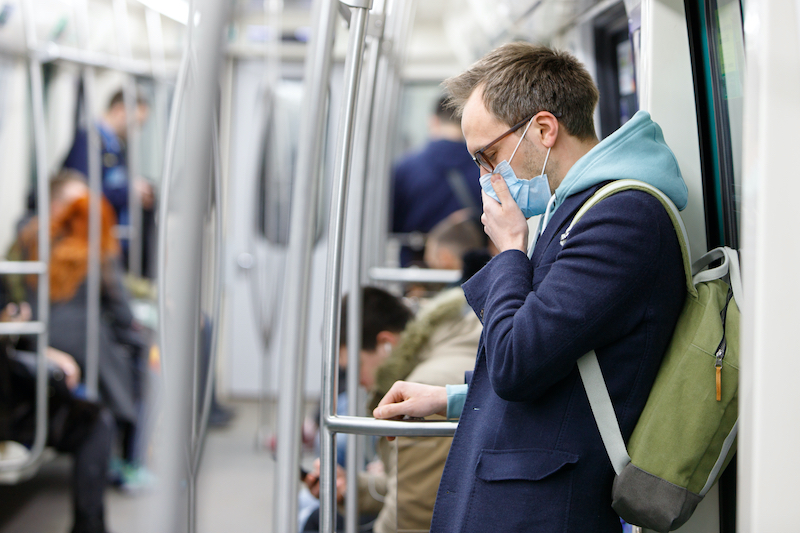


Coronaviruses are named for the crown-like spikes which can be viewed on their surface under a microscope. The COVID-19 virus originated in China in late 2019. It is different to those which commonly circulate among humans, causing mild illnesses like the common cold.
How COVID-19 Spreads
The initial cause of the outbreak hasn’t been confirmed, but health officials suspect the spread began at a wet market in Wuhan, or live animal market, as many workers became sick. The virus is likely to have passed from animals to humans and has shown similarities to coronaviruses carried by some bats.
Human coronaviruses are spread through contaminated droplets, usually by coughing, sneezing, or with contact through contaminated surfaces, objects, or hands. Particles from these droplets can be breathed in or consumed by other people. This occurs through close contact with someone who is confirmed to have coronavirus.
Symptoms typically appear within five to six days, but there have been cases where this has taken up to 14 days.
The amount of time COVID-19 survives on surfaces is unclear, but other coronaviruses have persisted on surfaces ranging from a few hours to a few days.
Locations
If you have recently travelled through any of these areas, you have a higher risk of exposure to COVID-19.
- Mainland China
- Iran
- Cambodia
- Hong Kong
- Indonesia
- Italy
- Japan
- Thailand
- Singapore
- South Korea.
Symptoms
There are a number of common symptoms of the COVID-19 virus, which has also been likened to the SARS outbreak. These symptoms are also similar to symptoms of a cold or flu.
- Fever
- Cough
- Sneezing
- Runny nose
- Sore throat
- Fatigue
- Shortness of breath/breathing difficulties.
In more severe cases, the infection can cause pneumonia, severe acute respiratory syndrome, kidney failure, and death.
High-risk groups
Many people who have had COVID-19 have recovered, but there are a certain Australians who are part of high-risk groups. Unlike the flu, rates of infection and death for young people are very low. So far, experts have seen COVID-19 causing most concern for elderly people. People with pre-existing illnesses are also more likely to become seriously ill from this coronavirus.
The flu jab
Flu vaccines help prevent the severity of flu.
There are three types of flu virus experts have identified in humans: A, B and C.
Types A and B produce essentially the same illnesses, whereas C usually only affects children and produces milder symptoms, like a cold.
The flu vaccine contains a mix of three of four virus strains, which provide protection against both flu A and flu B infections.
Australian medical professionals create a new flu vaccine every year. This is done by assessing the recent flu patterns around the world and predicting which one is most likely to hit Australia.
The influenza virus can change rapidly, making it difficult to accurately predict.
It is important for every Australian to consider getting the flu vaccine. It can help prevent high-risk people contracting the flu from others.
Flu vaccinations are important because complications can be serious for certain people, and can be fatal.
Prevention
A vaccine has not yet been created for the COVID-19 virus, but there are a number of ways to help prevent it. Concerns have been raised about the upcoming 2020 flu season and how this could exacerbate the effect and spread of coronavirus, so health authorities are encouraging people to ensure they get the flu vaccination this year.
The Australian Government recommends practising good hygiene to help protect against infections. This includes regularly washing your hands with soap and water, and using an alcohol-based hand sanitiser. If you cough or sneeze, cover your mouth with a tissue. Also, ensure you self-isolate if you are experiencing symptoms and seek medical care immediately.
To avoid exposure to others, wearing a mask to cover your mouth and nose is recommended. If you are attending medical appointments, let the practice know you are experiencing symptoms before coming to your appointment. If you are unable to leave your house to attend an appointment, House Call Doctor recommends organising a telehealth consultation.




